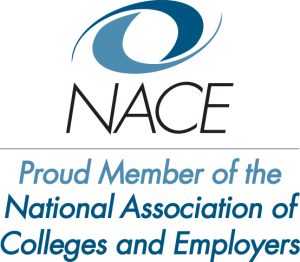Examples of Career Goals for Each Step of Your Journey
Let’s go over some examples of career goals to help you set yours. Why is this important?
Setting goals, specifically SMART and SMART(ER) goals, is an effective method to improve your likelihood of reaching critical milestones. Many of us have goals related to financial savings, personal improvement, and most likely our careers. Below, we explore examples of career goals for individuals at different points in their journey.
We hope these examples encouraging you to set your own goals for your career – no matter where you are today in the process.
Types of Career Goals
Depending on your age, education, and where you are in your journey, career goals will come in many shapes and sizes. Below, let’s consider five individuals at different stages in their lives.
Discerning Your Career – Kamila (18 years old)
Kamila just graduated from high school and is preparing to enter college in the fall. While she doesn’t know exactly what she wants to study quite yet, she will focus on completing her core classes and a few electives. During this time, Kamila wants to explore various topic areas to find out what her interests are.
A career-related goal for Kamila at this point in her life might be focused on discerning what vocation she would like to pursue and learning how to best prepare for that career during her college years. An example of a SMART goal Kamila might set for herself is:
I will identify 3 possible career paths I am interested in (Specific, Measurable, Attainable) by the end of my first semester (Time-bound) to help me narrow down career options for the future (Relevant).
Pursuing your Passions-Harper (26 years old)
Harper has been working at a large company as a financial analyst for the last two years. However, in interacting with their HR department on a number of projects, Harper has realized she is interested in learning more about Human Resources and might want to switch career fields.
An example of career goals for someone wants to pivot to a different career or develop skills in a new field might be to connect and learn from an expert. A shift like this requires considerable time and preparation; therefore, Harper might set a series of smaller, manageable goals first. She might start with:
Shadow an HR representative at our company for a half-day (Specific, Measurable) by the end the year (Attainable, Time-bound), to further gauge my interest in this field (Relevant).
Starting a Business – Derrick (32 years old)
After graduating high school, Derrick became an electrician’s apprentice. Derrick has been working as an electrician and has gained considerable experience over the last 14 years. It is his life-long dream to start his own small business and manage a team of electricians. Derrick now feels like he is ready to launch into this new adventure and is confident he has skills he needs. An example of a career goal might involve tackling the necessary legal steps to get started:
By the end of this week (Time-based), register my desired business name with my local government and apply for an employee identification number through the IRS (Specific, Measurable, Attainable) as these are necessary first steps to start my own business (Relevant).
Professional Development William (42 years old)
William has worked his way up over the last 8 years within his company. He started as a customer service representative and later became a member of the sales team. After excelling in this role, he has recently been promoted to Regional Sales Manager. However, William feels he doesn’t enough management experience and is apprehensive about some of his new responsibilities.
An example career goal for William might be to develop relevant skills to succeed in his new position. (He’ll need to set a SMART goal to be a bit more specific than that):
I will enroll in a 20-hour online management course (Specific) and complete at least 70% (Measurable) by the end of October (Time-bound, Attainable) to develop the skills I need to successfully manage my new team (Relevant).
Provide Mentorship – Fernando (60 years old)
At this stage in his career, Fernando is preparing to retire within the next few years position as Director of Finance. Part of Fernando’s job involves working with younger team members to ensure their continual development and plan for their growth within the company. He is just starting to realize that he will really miss this part of his work. Given that Fernando attributes much of his success to his access to quality mentors throughout his life, he wants to give back to his community mentoring young adults and helping them plan for their futures. An example of a career goal Fernando might set for himself is:
I will help young members of my community plan for their futures (Relevant) by holding two free meetings each month at the public library (Specific, Measurable, Attainable) for the rest of the year (Time-bound) where individuals can ask me career-related questions and seek professional advice.
Set Your Own Career Goals
I’m sure you’ve heard that Rome wasn’t built in a day. The same holds true for your career as well. Maybe you are preparing to graduate with a bachelor’s degree within the next year and hope to one day be the CEO of your own company. Success doesn’t happen overnight, and this larger goal will require incremental progress. For instance:
- Obtain a job in my desired field
- Get a promotion at my current job and take on more responsibility
- Network with other entrepreneurs
- Research and fully understand the competition in the marketplace I want to enter
- Identify business partners
- Secure my first client
- And a whole lot more…
We can provide examples of career goals for each of the steps listed above – Can you? How about examples of career goals for yourself?
Remember, focusing on setting smaller (attainable) goals that are specific and measurable to help you stay focused and make persistent strides (time-bound) towards your biggest dreams (relevant).
-1.png?width=288&height=67&name=PathwayU_PGLogo%20(1)-1.png)



